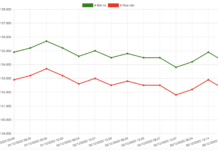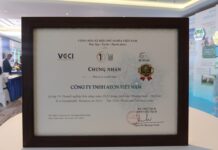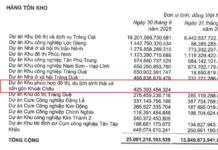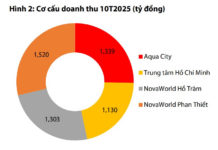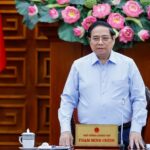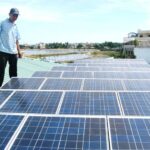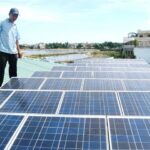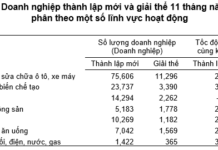
Rooftop solar power, which is self-generated and self-consumed, can sell excess electricity back to the national grid but not exceeding 20% of the actual installed capacity.
|
Policies Encouraging the Development of Rooftop Solar Power
In the draft, the Ministry of Industry and Trade proposes policies to encourage the development of rooftop solar power that is self-generated and self-consumed.
| Self-generated and self-consumed electricity refers to electricity produced and consumed at the point of use by an organization or individual to mainly serve their own needs. |
Accordingly, organizations or individuals developing rooftop solar power that is self-generated and self-consumed, which falls outside the scope of the national power development planning and provincial power grid development plans, are exempt from obtaining a power business license as stipulated in Article 33 of the Law on Electricity.
Investment projects for developing rooftop solar power that is self-generated and self-consumed are considered renewable energy projects and are entitled to special investment incentives as stipulated by investment laws. They also enjoy preferential tax treatments in accordance with the law.
The installation of rooftop solar power systems on construction works is exempt from land use planning and adjustments, as well as changes in the function of the works as stipulated by law.
The draft clearly states that rooftop solar power systems for self-generation and self-consumption are considered technological equipment attached to the construction works in the case of residential houses, and are considered public assets in the case of office buildings and other public structures.
Households developing rooftop solar power that is self-generated and self-consumed are exempt from or do not need to adjust their business licenses if they sell excess electricity back to the national grid.
Mechanism for Trading Excess Electricity
According to the draft decree, excess electricity from rooftop solar power that is self-generated and self-consumed can be sold back to the national grid but not exceeding 20% of the actual installed capacity. Depending on the situation of the power system operation in each period, the Minister of Industry and Trade will decide on the ratio of excess electricity trading.
The trading of excess electricity shall be carried out in accordance with the Law on Electricity, the agreement between the seller and the buyer of excess electricity, and the following principles:
In all cases, the buyer of excess electricity shall only pay for the excess electricity sold back to the national grid, corresponding to a maximum of 20% of the actual installed capacity of the power source.
The price of excess electricity shall be the average electricity price of the electricity market in the previous year, announced by the unit operating the power system and the electricity market.
Excess electricity from rooftop solar power installed on office buildings and other public structures, which are considered public assets, shall not be sold back to the grid.
For power sources with an installed capacity of more than 1,000 kW that sell excess electricity back to the national grid, a power business license must be obtained in accordance with the law.
Nhat Quang
The Government is Set to Issue a Decree on Encouraging Rooftop Solar Power
On the afternoon of September 23, Prime Minister Pham Minh Chinh chaired a meeting of the Government’s Standing Committee on the draft Government’s Decree on mechanisms and policies to encourage the development of rooftop solar power.
Unlocking the Potential of Rooftop Solar: The Upcoming Breakthrough for Renewable Energy
The potential for rooftop solar PV systems in Vietnam is vast and could exceed the current capacity of 2,600 MW outlined in the Power Development Plan VIII.








